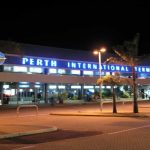 Qantas has used a landlord and tenant analogy in a spirited argument over its current legal stoush with Perth Airport over charges.
Qantas has used a landlord and tenant analogy in a spirited argument over its current legal stoush with Perth Airport over charges.
Perth is very important to Qantas – the airline operates Perth-London non-stop flights and has plans to expand non-stops to other European points – but Perth Airport is in a legal stoush with the airline, alleging that Qantas has unilaterally decided to short-pay its invoices by about 40%.
The dispute was outlined by the West Australian newspaper, which reported that Perth Airport had issued a writ for AUD 11.3 million to recover unpaid charges. See: Perth Airport sues Qantas alleging insufficient payment
Now Qantas has hit back, publishing the following argument by chief executive Qantas Domestic, Andrew David, on its website and elsewhere:
Imagine you were signing a new, seven-year lease for your house, but your landlord told you that you would have to pay 20 years’ worth of rent.
You can’t move anywhere else, because that same landlord owns every house in town. It’s a monopoly.
If you don’t agree to the new terms, they’ll send you invoices anyway – and if you don’t pay up, they’ll sue.
That’s the situation we find ourselves in with Perth Airport at the moment.
Despite 12 months of negotiations, we have been unable to reach a new agreement on airport fees.
Perth Airport already charges airlines and passengers a lot in those fees.

Perth International Airport
In fact, it is one of the top ten most profitable airports in the world – coming in well ahead of the airports in global cities like Singapore and Hong Kong.
Airports are businesses too, of course, and need to make a return for their shareholders.
But Perth Airport, as a monopoly, has no competition. They can charge what they like.
Ultimately, the travelling public end up footing the bill.
For every $100 they make in revenue from passenger charges, car parking or retail, Perth Airport makes more than $50 in profit. Most businesses can only dream of margins like that.
It’s true that Qantas has had a good few years of financial results, but our margins are more like 10 per cent.
We disagree with Perth Airport on three key things.
First, despite saying their fees were going down, Perth Airport wants Qantas and Jetstar to pay almost 5 per cent more per year on average – that works out to be around 38 per cent more by 2025 than we paid last year.
While we are using ageing infrastructure, these fees should be going down, not up.
Second, Perth Airport seeks an excessive financial reward equivalent to that earned by high-risk investments.
But an airport isn’t a high-risk venture. It is one that enjoys a monopoly in a geographically-isolated major city.
And finally, Perth Airport is trying to charge us 20 years’ worth of use of our terminals – that’s tens of millions of dollars in depreciation charges – even though it’s a seven-year agreement.
No other airline is being charged this. That may explain why they were happy to sign up.
This is what we mean when we talk about the monopolistic landlord.
With this type of behaviour from airports, no wonder the Federal Government asked the Productivity Commission to consider whether more effective regulation is needed.
We have acted in good faith throughout these negotiations.
The old agreement expired back in July, but we have continued to pay Perth Airport – just not at the unjustified rates they have proposed.
We are so proud of the role we play in Western Australia – helping bring more tourists and trade to the state and connecting Perth to the world, including through our new direct flights to London.
We are willing to pay reasonable charges – but we want to ensure that our customers are not paying more than is absolutely necessary.
– Andrew David, CEO Qantas Domestic
Edited by Peter Needham















